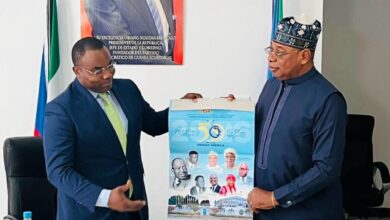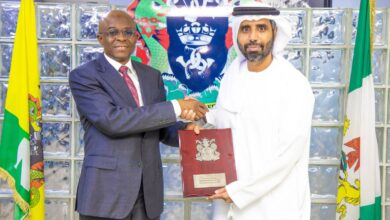CAPPA Flays NPA Over Concessioning of Water Services at Tin Can Island Port
...As group drags Wike for ceding FCT lightening, water supply projects to Chinese firms

By Edu Abade
The Corporate Accountability and Public Participation Africa (CAPPA) has criticised the Federal Government’s decision to privatise the Tin-Can Water Treatment plant by handing it over to Sandust Tincan Water Project Limited (STWP) under a 16-year concession agreement.
Citing reports, the group insisted that the concessioning of the plant located within the Tin-Can Island Port (TCIP) complex following 18 years of abandonment, decay and neglect of the facility, raises concerns about the indiscriminate sale of public utilities by the current government.
The concession agreement worth N11 billion, effectively transfers the management and operation of TCIP’s water facilities to STWP, beginning September 1, 2025. The functional operation of the TCIP’s water utility is expected to restore the production and sale of fresh water to visiting vessels and port users.
CAPPA noted that the concession agenda, driven by the Nigerian Ports Authority (NPA), the Federal Ministry of Transportation, the Infrastructure Concession Regulatory Commission (ICRC) and the Ministry of Finance, signals a worrisome pattern of auctioning off essential public assets, particularly water infrastructure, under the guise of efficiency and increased revenue generation.
It further stated that the concession reflects the lack of attention to the urgency of revamping water utilities for the benefit of underserved populations, adding: “Tin Can Island Port is Nigeria’s second-busiest port, serving as a crucial hub for international trade and economic development.
“As such, the supply of adequate clean water is also critical for sustaining the millions of citizens and residents within and around the port community who rely on it for their everyday domestic needs,” the statement noted.
It lamented that turning over the control of such a vital resource to private hands with the sole purpose of revenue generation represents a step in the wrong direction and urged the government to reverse course by prioritising inclusive, socially responsible solutions that place public welfare at the centre of governance and development.
Reacting to the development, Executive Director of CAPPA, Akinbode Oluwafemi, described the NPA’s justification for entering a concession of the port’s water facility as disingenuous, noting that the government should have invested in and managed the utility directly given the woeful performance of concession ventures in the country.
A statement endorsed by Media and Communication Officer of CAPPA, Robert Egbe, quoted Oluwafemi as saying: “Records from the ICRC revealed that the concessioning of public utilities in Nigeria has seen more failures than successes.
“For instance, a report by the commission last year indicated that the Federal Government risked losing about N183 billion due to failed contractual agreements involving 25 concessioned public facilities and infrastructure.
“Interestingly, the NPA has recorded the highest failures over the past two decades. The Nigerian Ports Concessions of 2006, which is considered Nigeria’s first and largest concession involving 20 contracts, failed nearly two decades after.”
On her part, CAPPA Water Programme Officer, Sefa Ikpa, said: “Entering into a concession agreement is not a solution but a symptom of a deeper systemic problem. In many instances, what leads to the decay of public infrastructure is rampant corruption and nepotism fuelled by a lack of accountability measures to keep public officers in check.
“Interestingly, even many private investments and firms, including financial institutions have failed in Nigeria due to the same challenges. What this means, therefore, is that concessions are not the ultimate solution, neither is public ownership of national infrastructure an effort fated to fail.
“What needs to happen is the enforcement of effective accountability systems and best practices in the management of public utilities to guarantee optimum service delivery.’’
The environmental watch dog also decried the recent Memoranda of Understanding (MoU) signed by the Minister of the Federal Capital Territory (FCT), Nyesom Wike with China Civil Engineering Construction Corporation (CCECC) and China Geo-Engineering Corporation Overseas Construction Group to enhance the lightening of the FCT and boost improved rural water supply.
CAPPA expressed concern that these deals followed the same pattern of outsourcing critical services to foreign entities, continuing the cycle of external dependence that has continued to hobble Nigeria’s national development priorities while exporting critical expertise and jobs.
“It must be emphasised that no nation develops equitably when its critical national infrastructures, such as public water utilities, are submitted to private hands for profit-making.
“Rather than blindly following the dictates of international financial institutions, Nigerian authorities must find the courage to develop home-grown policies and initiatives that can truly fast-track our country’s national development and growth.
“The cycle of dispossession and exploitation that has long been the scorecard of public-private partnerships, privatisation or concession and other similar neo-liberal policies in Nigeria must be broken to give way for genuine public enjoyment of governance and ownership of national wealth,” the statement added.











